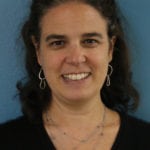As the number of first-generation college goers is growing, we have made progress in creating more pathways into postsecondary education targeted at these students. Yet as leaders and decision-makers consider the best ways to ensure more students successfully complete a postsecondary degree, research-based practices are an important tool to build understanding of strategies to help more first-generation college students earn a degree.
Closing the Social-Class Achievement Gap: A Difference-Education Intervention Improves First-Generation Students’ Academic Performance and All Students’ College Transition might not clearly state it, but the strategy tried by these researchers made a difference in outcomes for all college students, particularly first-generation students. This research design focused on a strategy that emphasized psychosocial and cultural supports, in addition to the financial and academic services typically targeted at the population of first-generation college goers.
The Research
The driving factor behind creating this experience was to see if the strategy could make a difference on the social-class achievement gap – the outcomes of first-generation college students, a population who is not experiencing success in postsecondary education at the same rate as their peers who had parents who attended college.[1]
Conducted by researchers across a variety of fields (business, humanities, and education), this study investigated the impact on student behaviors, attitudes, and academic outcomes of participation in a one-hour targeted panel presentation from older students. The incoming freshman students were considered in three groups:
- Campus-wide Control Group: incoming students who simply received the standard college orientation and did not have the one-hour panel.
- Control Group: A group of students (including some first-generation) who received the one-hour panel presentation from older students on how to navigate and adjust to life in college.
- Treatment Group (the difference-education intervention): A group of students (including some first-generation) who received the one-hour panel presentation from older students that emphasized how their social-class backgrounds influenced their adjustment to life in college, including how and where to ask for additional supports.
It should be noted that both the control group and the treatment were financially compensated for their participation by earning $50 for listening to the panel and additional $20 for completing the end-of-year survey.
Overall, the results were positive across behaviors, attitudes, and academic outcomes, particularly for first-generation students who participated in the one-hour panel in which older students shared their backgrounds (treatment group). These students were more likely to seek college resources (e.g. meet with professors), experienced less stress and anxiety, and had higher GPAs than the two other groups of students. Yet, any student who experienced the one-hour panel had better outcomes than peers who did not (campus-wide control group); leading to the researchers’ title indicating improvement for all students.
Implications and Further Questions
This research validates many of the current trends in college access which have refocused efforts to not only provide access, but to support students through a successful transition into postsecondary education. Although it was not the research question posed by the study, the data does provide support for the near-peer advising model utilized by the College Advising Corps and MDRC’s College Match, where recent college graduates guide students through the college application and transition process based upon their own recent experiences.
To bring this research into practice, let’s consider opportunities to grow and scale this strategy:
- Should more colleges include the one-hour panel emphasizing students’ background as part of their college orientation programs?
- Should we consider a one-hour panel of experienced students for new Pell recipients?
Of course, the researcher in me must also add a parting thought: given the size of this study (n=168) at one private university, I hope researchers would consider evaluating this strategy on a larger scale as well as at community colleges!
To access the full research article, please visit http://www.psychology.northwestern.edu/documents/destin-achievement.pdf
[1] For more information on the social-class achievement gap, see Whither Opportunity? Rising Inequality, Schools, and Children’s Life Chances and Facing Social Class
Jennifer Brown Lerner is the Deputy Director of the American Youth Policy Forum.



